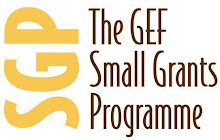Ile d’Ambre and ilôt Bernache, with its adjacent lagoon, is a particularly suitable area for introducing environmental education and sensitisation initiatives as it lies adjacent to a heavily populated area, and yet is easily accessible for field visits. Also, the islets and lagoon region contains a wide variety of terrestrial and marine habitats, including some unique habitats that can be developed as special features, that will provide students, researchers and visitors (tourists and locals) a good, practical introduction to the coastal environment.
One focal point of interest for research within this project is the presence of sea turtles which needs to be further investigated and can represent a unique feature;
The islands are used by the local community and tourists for picnics, resulting in severe habitat degradation and an accumulation of rubbish. It is essential that environmental awareness is raised among the operators many of whom are fishers with only a part time interest in tourism. It is also important that the visitors are fully informed of the environmental implications and contribute to the sustainable management of the area rather than its degradation. If managed correctly, Ile d’Ambre and the adjacent region of Mauritius could become an area of great local and national importance for ecotourism development.
The current project is considered as a pilot project which will provide an important baseline for other similar areas.
The Ambre eco management project is in accordance with the GEF-SGP Strategy which promotes activities with regard to conservation and sustainable use and management of biodiversity in coastal, marine and freshwater ecosystems (OP 2) and UNEP WioLab which "addresses some of the major environmental problems and issues related to the degradation of the marine and coastal environment resulting from land-based activities (LBA) in the Western Indian Ocean (WIO) region". It is also in line with government policy and its international commitment with regard to environment preservation whereas to address the issue of coastal zone management in the country while at the same time tackling that of poverty alleviation through integration and empowerment of local communities in the development process. In fact it is going to contribute and add on to other initiatives of NGOs, multilateral agencies and the private sector. In trying to achieve the above-mentioned objectives, the current project will therefore contribute in the common effort to achieve the MDGs (Millenium Development Goals), in particular poverty alleviation and environmental sustainability.







Aucun commentaire:
Enregistrer un commentaire